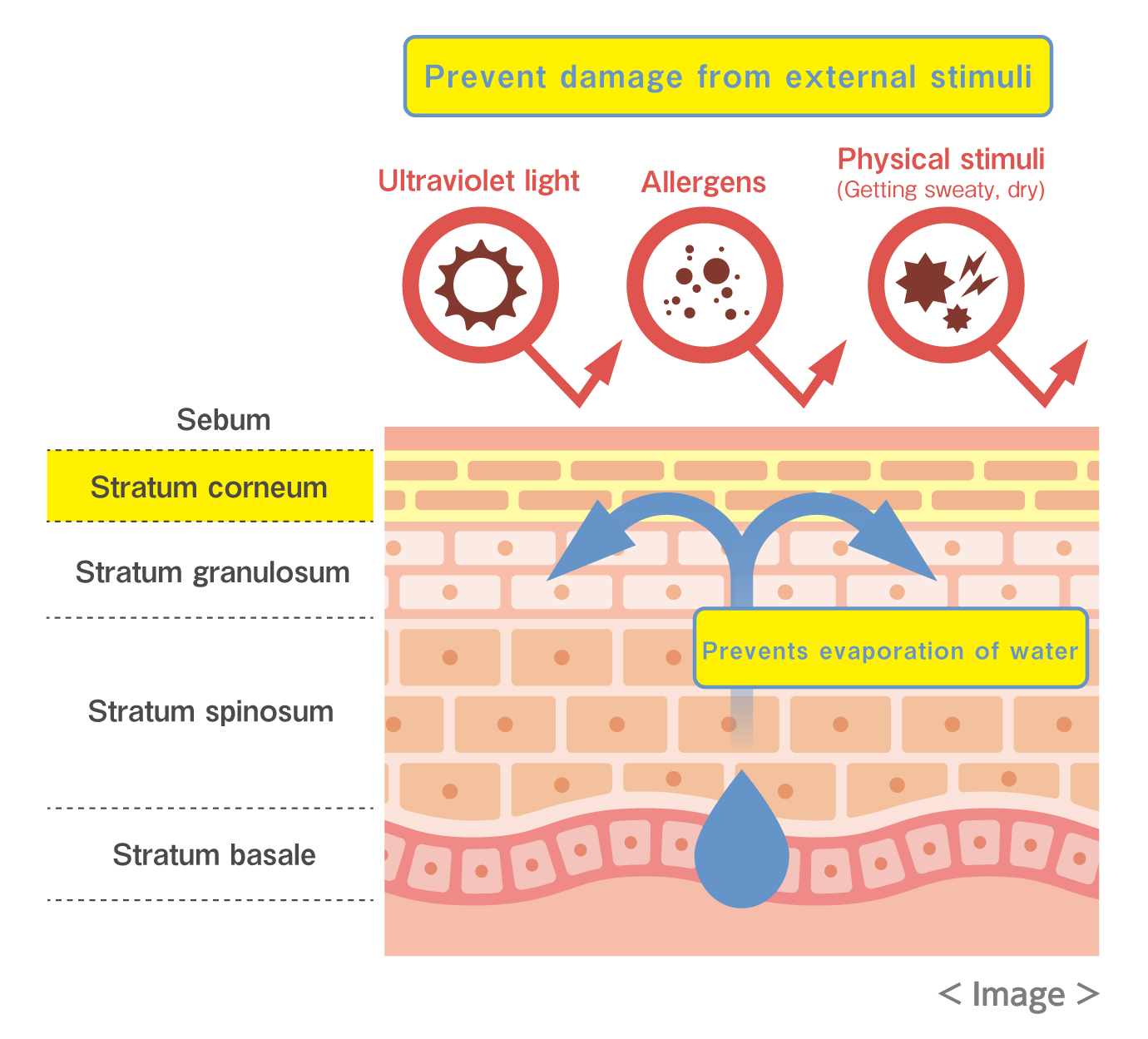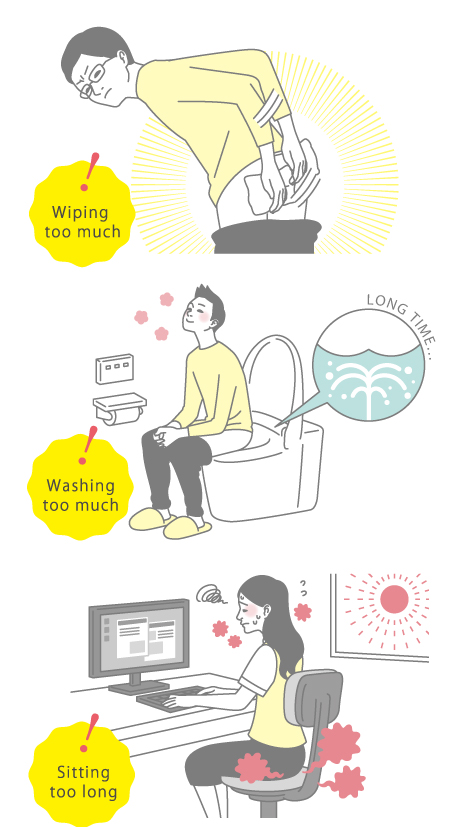
Rough skin in the perianal area is caused by excessive wiping, washing, and sitting for a long period. Therefore, why do these behaviors lead to worsening of perianal skin?
Our skin consists of three layers: epidermis, dermis, and subcutaneous tissues. Each layer has unique functions.
The outermost epidermis is a very thin membranous tissue approximately 0.1 to 0.2 mm in thickness, which is divided into 4 layers: "stratum corneum," "stratum granulosum," "stratum spinosum," and "stratum basale" from the outermost surface.1) Of these strata, stratum corneum, the outermost part, is covered with a natural protective membrane called sebum to prevent evaporation of water from the body, and also has a barrier function to prevent invasion of foreign substances such as allergens and physical irritation.2)

If you wipe your anus too much in order not to feel discomfort after bowel movement, the stratum corneum in the skin surface will be damaged by friction. In addition, if you wash your skin too hard with soap or liquid body soap, or use warm water of a shower toilet seat at a strong water pressure for a long time or repeatedly, the sebum on the skin surface will be drained. Your efforts to keep the anus clean can also cause skin damage if it lacks restraint.
If you have such a condition in the perianal area, the barrier function of the skin decreases, and the skin gets susceptible to invasion and stimulation by foreign substances from outside. Decreased barrier functions also lead to evaporation of water. As a result, you will have symptoms such as increased itching or having a red skin.
In addition, when stool, mucus, etc. are attached to the skin in a rough condition and gas (flatus) touches it, you may feel itchy more severely. Therefore, you may scratch the skin unconsciously during sleeping, etc. and further damage it, leading to a vicious circle of increased itching sensation.3)
Getting sweaty in the perianal area caused by a sedentary lifestyle also contributes to decreased barrier functions. “Getting sweaty” sounds like a moist condition with moisture kept well. However, as excessive moisture continues, the stratum corneum will get damp, and peels off easily. At the same time, some moisture ingredients in the skin will be dissolved. The peeling of the stratum corneum cannot stop moisture evaporation from the skin, resulting in dry skin. “Getting sweaty” is actually a dry condition with insufficient moisturizing components 4), 5).
In this way, your unconscious, usual behaviors sometimes adversely affect the skin in the perianal area. Why do you not try to avoid wiping too much, washing too much, and sitting too long in daily life?


[Reference]
1) Hirao T.: Journal of Japanese Cosmetic Science Society, 37(2):95, 2013
2) Tagami H.: Allergy, 54(5):445, 2005
3) The Japan Society of Coloproctology: Itching in the buttock
https://www.coloproctology.gr.jp/modules/citizen/index.php?content_id=23
4) Takaoka Station South Clinic: Minutes of Takaoka Home Pressure Wound Research Meeting "The 41st Perianal Skin Injury: Dry Skin for Maceration", 2009
https://www.ekinan-clinic.com/download/435/
5) Japanese Society of Wound, Ostomy, and Continence Management: IAD Best Practices, 2018